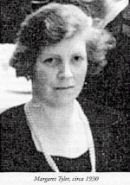I worked her out and gave Lachesis 200, and then a dose of Lachesis CM. This was promptly followed by alarming collapse, haemorrhage, rapid greenish fungations, and intolerable odour (all relieved, by the way, by a dose of ornithogalum a few weeks before she died). This Lachesis CM aggravations pleased me, rather than otherwise-showed that I had hit the drug. A second dose, later, was followed in half an hour by collapse; and, again, a horrible aggravation of all symptoms. But I still fondly hoped that the reaction might carry her a long way toward clearing up the case. It never came. And I have learned my lesson now.
In advanced disease, malignant or tuberculous, with much tissue change or lowered vitality, philosophy teaches that the most terrible that you can give your patient is the indicated remedy in high potency. Give her anything but that!
Some of you are fidgeting with impatience, not believing this, or vowing that if you did believe it you would quit homoeopathy. But others in the discussion, by and by, will more than confirm it from their own experience. You will find that it is the men who know their work, and can handle their power, and get results, who are not only the most keen and enthusiastic, but who develop at times a positive terror of their drugs-in the potencies; for they know how potent they may be for evil as well as for good; that when the diseases mass is large, or the reaction poor, the most harmful drug you can give to a patient is the similimum unless very cautiously and low.
INTERFERENCE
Another brilliant way not to do it (you see that I have tired them all) is to have your cases in common, and to work with some one who knows little, and cares less, for the philosophy of prescribing. It is late; there are a heap of patients to be got away in a short time. He sees a case on which you have expended much labour and thought; hearts a tale of woe-a medicinal aggravation perhaps (your poor prescriber does not believe in aggravations, for in the nature of things he gets few, and never spots one when he does get it!); or old symptoms returned; or a diarrhoea or rash or excessive sweating that may be critical, mean a sharp leap towards the cure of some serious condition, if left alone; or even symptoms worse and patient better (if he inquired), which should call a halt. But, at the first word, down goes a new drug; and the case is off at a tangent-perhaps beyond recovery.
This is how not to do it, with a vengeance! For this is to throw your very life, your energy, and your success, to the moles and the bats-and without compensation. You and your patient have both suffered for the victory that has been snatched from you, and suffered in vain! We all have plenty of chance, unless we walk warily, of spoiling another’s work.
But enough of how not to do it? There has been plenty of that in the past; but the past is beyond our reach. Old things are passing away, rapidly! Our concern is with the present; and the future, living or dying, is ours! Let us only diligently train the younger men, and the great cause is safe in their hands. Those who can wield power can be trusted never to betray it.
And to you who have learned your homoeopathy under a master; who know its philosophy by heart; who have been trained to work out your cases, to respect and fear your potentized drugs and to use them only safely; who have learned to recognized and understand and deal with results-to you I would say:
Be patient, be gentle and courteous, be tolerant and forbearing. You have no idea how those who have not had your advantages have struggled and do struggle, in a heart sickening way, and without your results to buoy them up and reward their labours. They can look back, many of them, to the time when their enthusiasm was as great as yours; when they knew their drugs, from diligent study, as well as you do, and with far more labour than you have bestowed, who have had them presented to you in an attractive way-who have been taught.
And, above all, be good stewards of the gift that was given to you, and be ready to impart. Each one of us, working by himself and for himself, has only a limited life work, a limited fund of hours and energy, and then comes the “whisper out of the darkness” that says “the end is forbidden”! that says, “thy use is fulfilled”-and then, silence. But think how enormously we can multiply our life work, our influence, the sphere of our energy and usefulness, by helping and inspiring others.
What an enormous mass of work may at last be laid to our account. Think of the work that Dr. Kent is doing in the world today, through his scholars, through the men he has kindled and inspired, and taught, and the men that they, in their turn, have taught, and are teaching. Believe it, there is no greatness in the world but through service. He that would be great among you, let him serve. Teach! Help! Strengthen! Hearten! Inspire! Freely ye have received, freely give-and of the best that is in you.
HOMOEOPATHICIAN.

